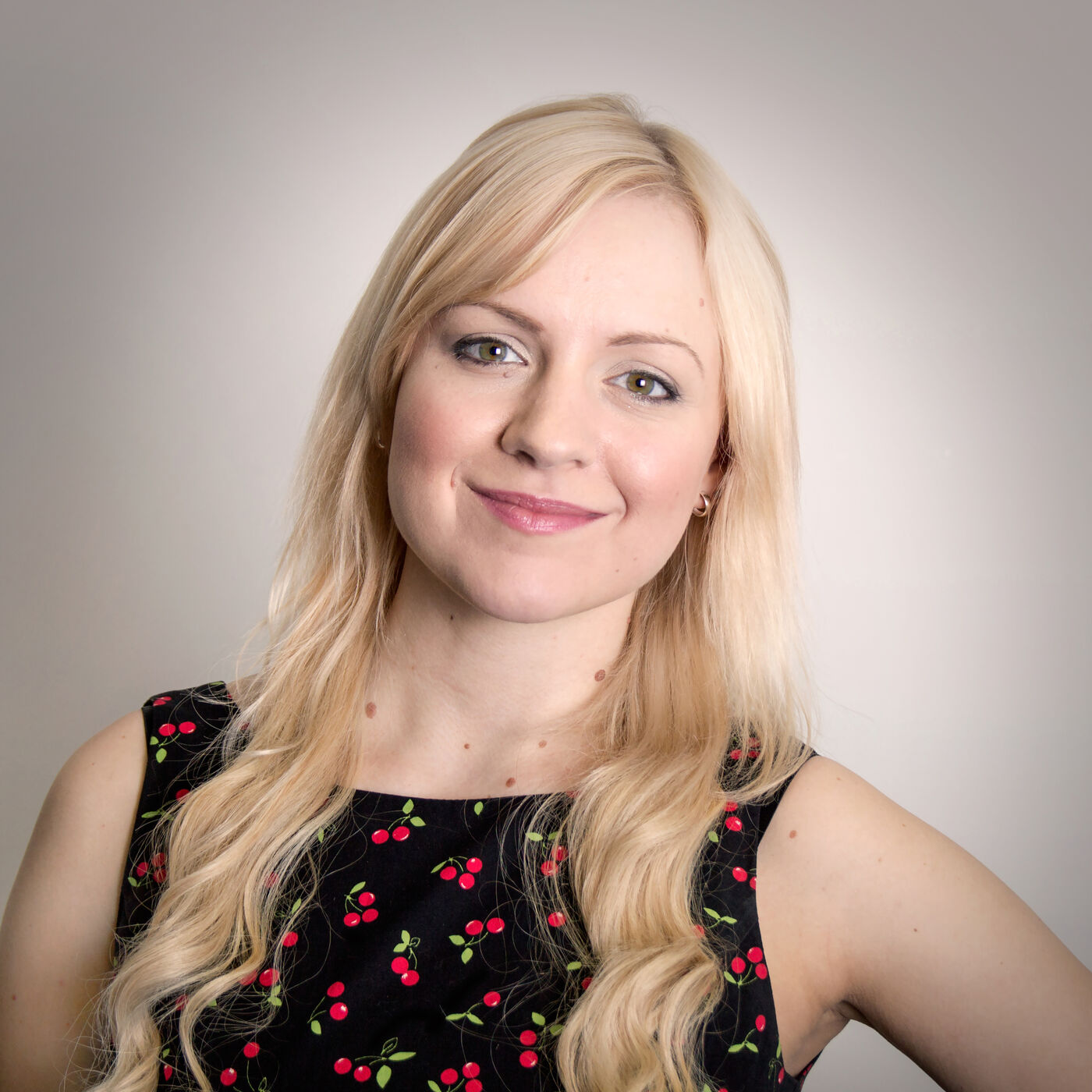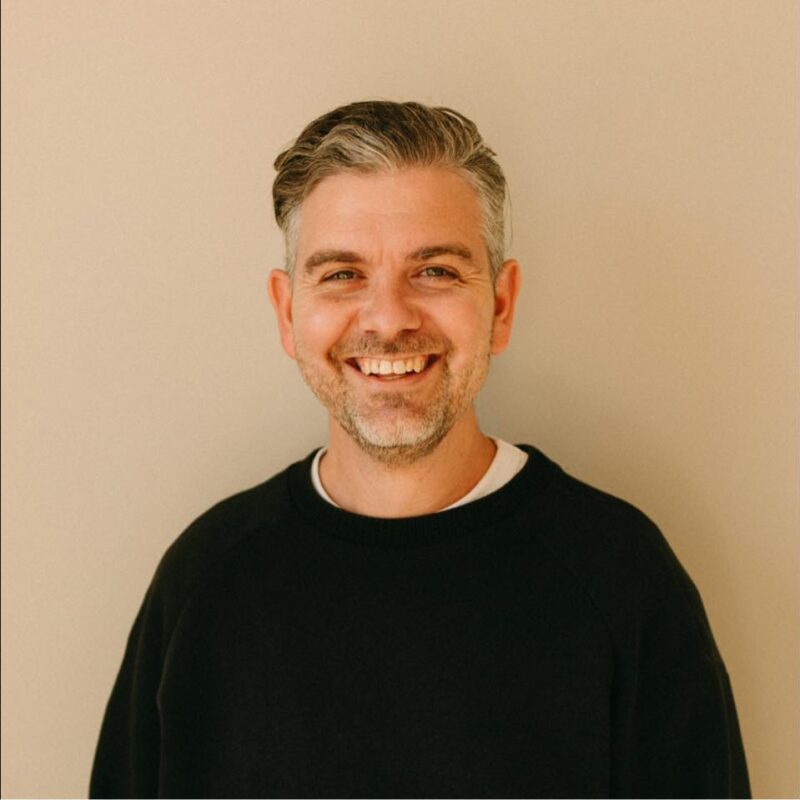28: Marcia Muller on Being Spiritually Sensitive & Moving in the Prophetic
Marcia Muller has lived a fascinating life with a dramatic conversion story full of the supernatural. Now she works as part of the Billy Graham Evangelistic Association in stirring up evangelism across the globe. We talk about being spiritually sensitive, how God got her attention and how to move in the prophetic gifting.
👉 Find out more about Billy Graham Evangelistic Association at billygraham.org
👉 Follow Sats on Instagram at instagram.com/satssolanki
👉 RATE, REVIEW & SUBSCRIBE to get more content like this
27: Daniël van Deutekom on Supernatural Healing, Social Media & Modern Day Evangelism
Daniël van Deutekom is the founder of God First, an organisation with a vision to reach young people in the Netherlands with the gospel. This conversation goes deep with stories of God moving in healing and miracles contrasting with the topic of suffering and loss.
PS. We spontaneously prayed for people during the podcast conversation. If you experienced God healing you in any way then please do reach out to share your story.
👉 Support God First at www.godfirst.nl
👉 Follow Daniël on Instagram at instagram.com/danielvandeutekom
👉 Follow Sats on Instagram at instagram.com/satssolanki
👉 RATE, REVIEW & SUBSCRIBE to get more content like this
How to create discipline
As I write this, I am celebrating a personal best when it comes to fitness. At the start of 2023, I set myself a goal to workout every single day.
If fitness is not your jam, don’t worry because this post isn’t really about fitness at all. It’s about how to create discipline.
I set a few caveats to make this achievable:
Weekdays only. Five days across Monday – Friday seems like plenty.
Holidays don’t count. I knew I wouldn’t necessarily have access to a gym or be on a schedule that would let me keep my habit going.
Intensity didn’t matter. I knew there would be some days that I didn’t really want to work out but if I could just get myself to the gym then I’d end up doing something which was better than nothing.
And today I hit a 150 day streak.
I’m not finished either.
What’s wild is that when I went on holiday for two weeks recently, I was actually genuinely quite sad not to be able to go to the gym and workout.
Please be assured that this is not a sentiment I have ever felt before.
Change your focus
Many of us have goals in all sorts of areas of our lives. In fitness, we might focus on muscle mass, weight loss, flexibility, strength etc. In business it’s nearly always profitability. In church we tend to gravitate to numbers such as Sunday attendance or small groups.
But I’ve learnt over the last 150 days that whilst such goals are not inherently bad, they’re nearly always very unhelpful to focus on.
I know that because my number one goal each day has simply been to keep the streak going. And without a lot of willpower, I have somehow quasi-miraculously turned into someone who goes to the gym.
It’s important to note that I would still class myself as a novice in this area. I’m learning plenty about all of the nuances around different exercises, rest, nutrition, intensity etc. But I would be lying if I said I haven’t felt the benefits.
💪Increased strength
💊No more back pain
☀️Greater confidence
🔋More energy
Doing a few perfectly executed workouts will always lead to lesser results than 150 days of consistency. In fact my real goal is much less about days and much more about years and decades. That’s where the real results and benefits are.
Why you fail
Whenever you start to focus on the wrong thing, we naturally lean into intensity and what we do becomes unsustainable. Here are some examples.
Money. When we only think about profit we start to see our customers as a means to an end. Ironically they will sense it too and it drives down business and hurts your brand.
Growth. When the goal of the church is to get people into a room, this quickly leads to a cheapening of ministry and watering down of the thing that makes the church so powerful.
Do we want our businesses to make more money? Do we want our churches to be full of people? Well yes of course. But these are the wrong things to focus on.
Try this simple 3-part framework instead.
1. Choose your direction
Yes we do need a vision and we will need to check in on it from time to time but NOT every day. Take time to reflect and envision the future and then forget about it. I’ll explain why in the next point.
2. Plot your route
Now that you have clarity about where you want to go, break down the steps of how to get there. The truth is that it’s easier to dream about the future than it is to do the work. That’s why so many of us are great at starting things but rarely follow through.
3. Make failure unacceptable
Now that you know where you want to be and how to get there, you want to make sure that you don’t give up. This is near-impossible on your own. You need someone to hold you accountable to the plan that you’ve made so that you’ll actually see it through. Because it’s the work in the day to day that gives you the results you desire.
We can also think of these three parts as vision, strategy & accountability.
I use this simple framework with my coaching clients and it works. If you think about every great project or creative idea you attempted that didn’t pan out, then you’ll be able to see why in contrast with the framework above.
So now it’s time for some questions.
How many dreams have fallen by the roadside because you simply did not follow through with the process?
And how happy would you be if you could turn just one of your dreams into a reality in the next 12 months?
This is exactly what my coaching programme is about. Whether business growth, church strategy or personal goals and projects, book a Clarity Call using the button below to find out if you’d be a good fit.
Why the church deserves our criticism
I have made a significant shift in the way I think and talk over the last few years about the church. But to frame this conversation, I must first give you a little background into me as a human being.
I am possibly one of the most optimistic people you will meet. I count it as one of my favourite characteristics. I have a certain ability to smile at the drama and difficulty of life and see the best in every situation.
There’s a certain ignorance that often comes with optimism (think about the captain of the Titanic for example) but largely speaking it’s a great quality.
Of course the reader may be tempted to assume that my optimism is a product of a sheltered or easy life. I must stress that this is not the case. Whilst there were many wonderful things about my childhood, I also grew up in an environment of violence and abuse. I emerged into my teenage years with a lot of emotional baggage.
I suspect my propensity for optimism comes from having had to work hard to develop it. Perhaps it was a necessary tool to deal with the difficulties of my childhood.
I find it interesting that society has a way of disregarding those who succeed in some way.
We assume the person with wealth inherited it.
We assume the person with a great physique has better genetics.
We assign time and chance to those who make it big
And perhaps we’re right some of the time. But almost certainly wrong some of the time as well.
The reason we jump so quickly to those assumptions is because it’s less painful to believe.
When we’re unhappy with where we are in life, we assume everyone else must have cheated in some way to get there.
Their success shines a light upon our failure. So whilst we love the idea of others succeeding, it’s not so simple when it actually happens.
I’m not telling you all these things in order to rabbit on about my wondrous qualities. I am simply attempting to paint a backdrop for the much more serious point I am about to make.
You see when it comes to dealing with criticism, it’s all too easy to paint people who raise such issues as overly negative, insufferable complainers. We smile politely but we don’t take it seriously.
And undoubtedly some of them are. And course not all criticism is fair, good or constructive.
But like me, just as undoubtedly some of them are NOT.
It’s easy to put all complaints in the same category of unreasonable because then we don’t have to really address them.
And many church leaders have made that mistake in recent years.
But consider this…
Criticism can certainly originate from a bad spirited person who hates the thing he critiques.
But criticism can also originate from a good spirited person who loves the thing he critiques.
The outcome can look similar and be distasteful to us (because who in their right mind likes complaints?). But the heart behind can be completely different.
I critique the church because I love the church.
Because the church is the bride of Christ.
The church is being perfected and made holy by him, eventually without spot or blemish in any way.
For if there is one thing worse than constantly criticising the church, it is never criticising it at all.
The parent that never corrects their child is not more loving but unloving.
The boss that never gives feedback is not kind but unkind.
The therapist that never challenges but always affirms the delusions of the patient is the worst sort of monstrosity.
Our lack of criticism actually leads to something much worse.
When church leaders themselves do not hold the church to proper account or criticise it fairly, we often inadvertently leave judgement up to the world.
And the world’s justice tends to be very heavy handed.
When we cover over extramarital affairs, bullying, emotional abuse and every other sort of evil because ‘they did a lot of good stuff too’ are we not falling into great error?
Just as God would hand over the people of Israel (in their sin) over to the neighbouring nations to be oppressed so God will let his church be torn apart in the media when we also sin.
Genuine persecution is a thing and I am not implying that getting smashed by the media is necessarily a sign of guilt.
But so much of what we call persecution is not really persecution. It’s the exact opposite – it’s actually judgement.
Consider this:
Did Paul only write nice things in his letters to the churches?
Remember how Jesus cleaned out the temple from extortion?
What about the massive amounts of doom and gloom of the prophets?
It seems obvious to me that to truly love, you must be willing to criticise.
And we need church leaders (such as myself) to move out of boundless optimism.
To become spiritually mature is to be able to feel and understand the full depths of positive AND negative emotion.
Not all anger is hate.
And not all angry people are haters.
In fact love and hate have an unusual relationship.
To love God is to hate sin.
To love the church is to hate its failings.
To love the church is to hold it to account.
To love the church is to dream of better.
To love the church is to build it up.
26: Dane Daniel on Rediscovering Holy Work
Dane Daniel and his wife Angana run The Urban Affair, a brand strategy and design consultancy. We talk about why we need to reclaim business as ministry, how to reach people more effectively and how faith can be outworked in the marketplace.
👉 Check out The Urban Affair at www.theurbanaffair.com
👉 Follow Sats on Instagram at instagram.com/satssolanki
👉 RATE, REVIEW & SUBSCRIBE to get more content like this
25: Philippa Hanna on Songwriting, The Power of Vulnerability & How To Build Genuine Community
Philippa Hanna is a singer-songwriter and an internationally published author with over 1500 live shows, two books and five studio albums to her credit. We sat down to talk about her journey as a musician, why vulnerability is so important and navigating mental health.
👉 Follow Philippa on Instagram at instagram.com/philippahanna
👉 For all things music, books & live shows coming up head to www.philippahanna.com
👉 Follow Sats on Instagram at instagram.com/satssolanki
👉 RATE, REVIEW & SUBSCRIBE to get more content like this
Four keys to foolproof decision making
Life ultimately comes down to the decisions you make.
Of course there are plenty of aspects of it that lie outside of our control. But this hardly seems like a good reason to give up all agency and abandon ourselves to the mercy of circumstance.
I believe that each of us will ultimately be judged on the merit of what we did with what we had. For me, this is the best definition of success that moves past the opinions of others or vanity metrics that so many chase after.
Whilst I’d love a Ferrari as much as the next person, here are four keys on foolproof decision making.
1. Get used to disappointing people
Oh yes, we’re starting here. Hopefully you’ve realised by now that no matter what you do, there’s always someone who won’t be happy.
Whether it’s your parents (you never chose to be the lawyer/doctor they hoped you would).
Whether it’s your pastor (who had big hopes for you in church ministry).
Whether it’s your friends (who preferred the old you).
Someone is always going to be disappointed.
The bigger the decisions, the bigger the disappointment.
Ultimately this comes down to the question of whose opinions you care about most.
I’m not suggesting that people around us don’t matter. Of course they do.
And we should weigh wise counsel and input from those who truly care about us.
But at the end of the day, only you are responsible for you.
It takes courage to make difficult decisions. But avoiding your future calling will create a whole new set of difficulties.
Think resentment, bitterness, grief over lost opportunities and dissatisfaction. The list goes on.
Over the years I’ve had to make many difficult decisions. From cutting certain family ties to leaving toxic organizations, it’s never been easy.
But when the disappointment fades, you’ll find that the boundaries have fallen in pleasant places.
2. It’s ok to change your mind
One of the things that makes decision making feel so intense is not feeling able to change course as you go.
But most of the decisions we make in life are actually reversible. And the worst case is usually not actually as bad as we think.
Of course we’d prefer not to look silly by backtracking. And this is perhaps much more the issue at hand.
Are we really worried about the decision or are we worried about what people will think of us if we change our mind?
Unsure about dating someone? You can always break off the relationship.
Worried about taking on that project? You can always drop it later.
Moving geographic location? You can always move back.
Funnily enough, many good things have happened to me by accident or by proxy. Because there’s still beauty and wonder around even when you don’t plan to find it.
So embrace the unknown. Make a list of the worst-case scenarios and potential paths for recovery. Then do it.
3. Consider the opportunity cost
When it comes to a new venture or change, most of us tend to compare our present situation with the potential.
But we nearly always make a colossal error in our calculations.
We assume that where we are is fixed and permanent.
But it’s not. It could change at any moment.
Your job could change at any moment.
Your church could change at any moment.
The economy could change at any moment.
Things that are familiar feel safe but that’s a purely emotional evaluation and shouldn’t really be taken into account with proper decision making.
The opportunity cost is about being aware of not just what you know but what you don’t know. Of course we don’t know what we don’t know but we should still include this in our assessment of the future.
We tend to look at present circumstances with rose-tinted glasses.
And we underestimate the possibilities of the future.
So we fret about the friendships that will change if we move, without considering the friendships that we will miss if we don’t move.
We hang on to a project we hate because it pays the bills. All the while missing new projects because we don’t have time to do them.
You don’t know what you don’t know. But just know that there is always a cost for staying still, just as there is a cost to your movement.
4. Evolve your identity
Change always challenges who we are.
I remember a few years ago when I started posting regularly on social media.
Before that I was a regular post-the-sky type of Instagrammer. But then I started sharing thoughts and insights that were deeper.
It was challenging because I could feel both the pleasure and displeasure of others.
Some were enjoying the content and encouraging me on.
Others were critical and judgemental. They may not have said it so specifically. But you would notice little comments here and there, designed to put you in your place.
My identity was changing and not everyone liked it.
Becoming a content creator was challenging how I perceived myself to be. I knew where my motivation came from but you’re still affected by what other people think of you.
And as I went on this journey, I began to see myself as a content creator. I truly began to believe that I had insights worth sharing.
I developed confidence to put myself out there, regardless of what others may think.
Any big change in your life will challenge your identity. That’s why it’s important to consider the emotional implications of your decisions too.
Allow yourself to become confident and secure in the latest iteration of who you are.
24: Bayile Adeoti on Creating Kingdom Impact Through Business
You'll love this conversation with Bayile Adeoti, founder and director of social enterprise, Dechomai.
👉 Follow Bayile on Instagram at instagram.com/bayileadeoti
👉 Follow Sats on Instagram at instagram.com/satssolanki
👉 RATE, REVIEW & SUBSCRIBE to get more content like this
23: Paul Cox on Starting The Church Co, Becoming An Entrepreneur & The Future of AI
You’ll love this conversation with Paul Cox, founder of The Church Co, an all-in-one church website builder that every pastor has heard of. Paul tells us about his fascinating journey building a side hustle and his decision to scale up the business just one month before the pandemic hit us. No one knew what was coming of course. We talk more about entrepreneurship, divine timing, the future of AI and his latest project Capture Collab.
► FREE SOCIAL MEDIA WEBINAR: https://digitalrabbi.co/onlineimpact
► YOUTUBE CONTENT FOR LEADERS & CREATIVES: https://www.youtube.com/@DigitalRabbi
► RATE, REVIEW & SUBSCRIBE to get more insightful content like this
► THE CHURCH CO: https://thechurchco.com
► PAUL COX ON INSTAGRAM: https://www.instagram.com/pauljosephcox
► SATS SOLANKI ON INSTAGRAM: https://instagram.com/satssolanki
22: Cheran Nathan on Creating a Job That You Love
I sit down with Cheran Nathan who runs a comedy channel called Cherry Pranks. We talk about his journey as a content creator, breaking out of conventional pathways of working life and the importance of principles in comedy.
► FREE SOCIAL MEDIA WEBINAR: https://digitalrabbi.co/onlineimpact
► YOUTUBE CONTENT FOR LEADERS & CREATIVES: https://www.youtube.com/@DigitalRabbi
► RATE, REVIEW & SUBSCRIBE to get more insightful content like this
► CHERRY PRANKS ON INSTAGRAM: https://www.instagram.com/cherrypranks/
► SATS SOLANKI ON INSTAGRAM: https://instagram.com/satssolanki






